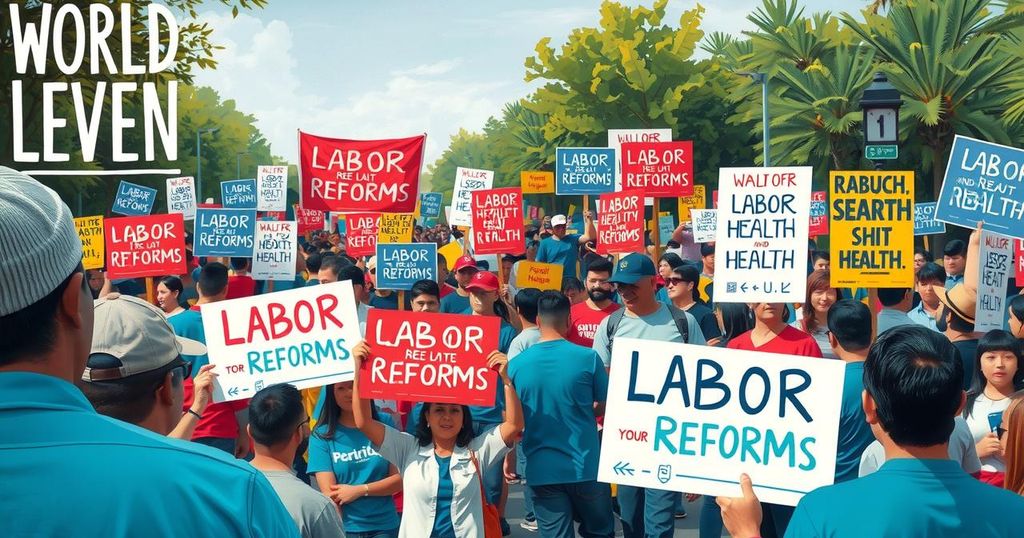Colombian President Urges Special Election for Health and Labor Reforms
Colombian President Gustavo Petro called for public support to initiate a special election aimed at reforming labor and health systems. He criticized opposition politicians and expressed determination to mobilize his supporters, albeit facing challenges in voter turnout and legislative resistance against his proposals. The forthcoming election is seen as a pivotal moment for energizing political engagement ahead of congressional elections.
President Gustavo Petro of Colombia called on his supporters to mobilize against centrist and right-wing politicians at a rally on Tuesday. He highlighted the need for immediate reforms in Colombia’s health system and labor laws, criticizing congressional members he described as “monarchs and tyrants” for obstructing necessary changes. Petro’s Historical Pact movement holds only one-fifth of Senate seats, complicating efforts to advance legislation.
In an effort to galvanize support for a special election, Petro granted a day off to national government employees so they could participate in protests. These demonstrations, actively promoted through social media and television ads, culminated in a gathering at Bogota’s Bolivar Square. During this event, Petro implored voters to “punish” congressional members for prioritizing corporate interests over the needs of the people, accusing them of succumbing to “corruption and greed.”
The proposed special election, termed a “popular consultation,” requires approval from the Senate and mandates participation from one-third of registered voters, equating to approximately 13 million individuals. Political analysts note that motivating sufficient voter turnout will likely pose a significant challenge, considering Petro secured 11.2 million votes in the 2022 elections. However, some experts suggest that the election could invigorate support for the government ahead of upcoming congressional elections in March.
During his 2022 presidential campaign, Petro pledged to overhaul the health system by eliminating insurance companies responsible for managing mandatory social security funds. He has criticized these companies for mismanaging substantial sums; however, his reforms have consistently faced opposition from legislators concerned about government capacity to manage patient administration effectively.
Petro’s labor reform agenda includes proposals to raise pay for nocturnal workers and restrict short-term contracts to encourage more stable employment. Unfortunately, this initiative was sidelined during a significant committee vote. Detractors of the labor reform express concerns that it may inadvertently increase unemployment by raising hiring costs for companies. Additionally, over 55% of Colombians participate in the informal economy without formal labor contracts, and critics argue that Petro’s reforms lack adequate incentives for these workers.
In summary, President Gustavo Petro is actively advocating for significant labor and health reforms in Colombia by urging public support through a special election. Despite opposition from congressional members and challenges related to voter turnout, the proposed consultation aims to energize Petro’s supporters and highlight the perceived failures of centrist and right-wing politicians. The path forward remains tumultuous, as Petro’s ambitious reform agenda must navigate substantial legislative hurdles.
Original Source: www.washingtonpost.com




Post Comment